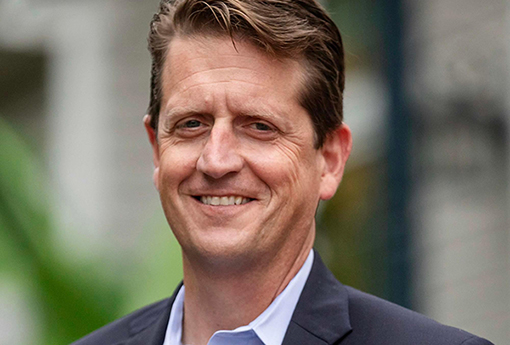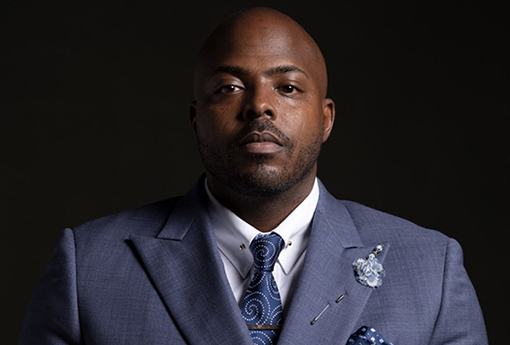
“A Truly Global Experience”: Teacher Dana Tatlock Attends the Nobel Prize Teacher Summit
October 11, 2023
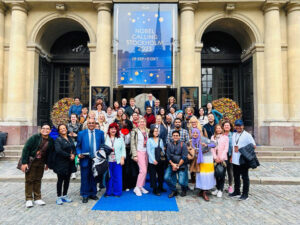
Earlier this month, we learned about the latest Nobel Laureates. The announcements celebrate outstanding achievements in physics, chemistry, physiology or medicine, literature, peace, and economic sciences (though this last award is technically the Sveriges Riksbank Prize in Economic Sciences in Memory of Alfred Nobel). As the Nobel Foundation describes, “The Nobel Prize shows that brilliant ideas, science, compassion, and hard work can improve the world. Teachers, and the profession of teaching, are crucial to promoting this.” That’s why, in 2017, the foundation established the Nobel Prize Teacher Summit. The annual conference, which is organized by the Nobel Museum in Stockholm, Sweden (where the prizes are awarded) brings together teachers from over 30 countries to meet Nobel Laureates, top scientists, and peace activists and discuss a theme of great importance in education. This year, Wheeler 6th-Grade Global Studies Teacher Dana Tatlock P’20, P’24 was one of those teachers.
“It was a truly global experience,” Ms. Tatlock told us shortly after returning from Sweden last week. “There were probably 50 international teachers, and one day, we were joined by about 200 teachers from Sweden. I made close connections with teachers from Ethiopia, the Philippines, Uganda, Sweden, and Ukraine. Part of what’s special about the Nobel Prize is its global reach, and this bringing together of teachers was really quite cool and inspirational.”
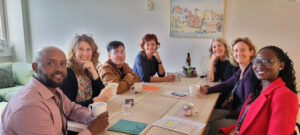
Ms. Tatlock says that one of her favorite experiences came on a day when the teachers were divided into smaller groups that each visited a Swedish school. “My group was made up of middle school teachers, and we visited a local middle school. So we got to see kids who are the same age as kids we teach, and to be seeing that through my American eyes was interesting,” she says. “One thing that really struck me throughout the whole summit was the Scandinavian focus on sustainability and how awareness of the environment was part of everything, from how people commute and get around, to what people eat. For example, at the school we visited, they serve vegetarian meals four out of five days a week. ‘Why?’ we asked them. ‘Because it’s better for you and better for the environment,’ they told us. I’m seeing things like that, whereas the teacher from the Philippines was amazed by how the classes were so small – he teaches 60 kids in a classroom. The teacher in our group from Ethiopia said everything felt so orderly. To have this window into something we all understand – education – and while it all felt like a school to us, to hear people from all over the world having different reactions to it was fascinating.”
In addition to the focus on education, the teachers also had an incredible opportunity to learn about the Nobel Prize from the awarding foundation and some of those who have received it. “One day, there were speakers and workshops, and two of the speakers were former Nobel Laureates for Peace,” Ms. Tatlock shares. “One was a woman from Yemen, Tawakkol Karman, who won the Peace Prize in 2011 for her leadership during the Arab Spring. Whenever anyone wins a prize, and they come to Stockholm to accept it, they are asked to bring an artifact to leave at the Nobel Museum. She had given her megaphone, because she said, ‘This is my voice and my weapon.’ At the end I went over to say hello, and she told me she lives in Boston now. When I told her I’m in Rhode Island, she said, ‘You must get in touch!’ I would love to have her come to Wheeler and speak with our students.”
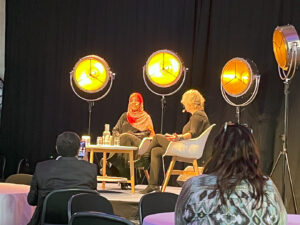
In addition to connecting with some incredible new guest speakers, including some of her fellow teachers from around the world whom she now plans to invite into her class’ “Mystery Skype” sessions, Ms. Tatlock is already planning a sustainability unit in collaboration with Middle School Science Teacher Jen Block P’20, P’22 that is informed by her time in Sweden. She also looks forward to teaching her students about the Nobel Prize itself. “Sixth-graders, in particular, are at this point where the world is opening up to them, and they’re able to see the bigger picture. Some of my goals in class are to have them think about the questions: How can we be global citizens? How are we connected to other people in the world? How are we connected to issues in the world? How can we make an impact? Those themes fit exactly into the Nobel Prize: it recognizes people who are thinking big picture and globally. People who are taking action. People who are visionaries. I’m always looking for stories to inspire kids, and one of the things that I find so inspirational about the Nobel Prize is that it’s not always the biggest voices that get recognized.”
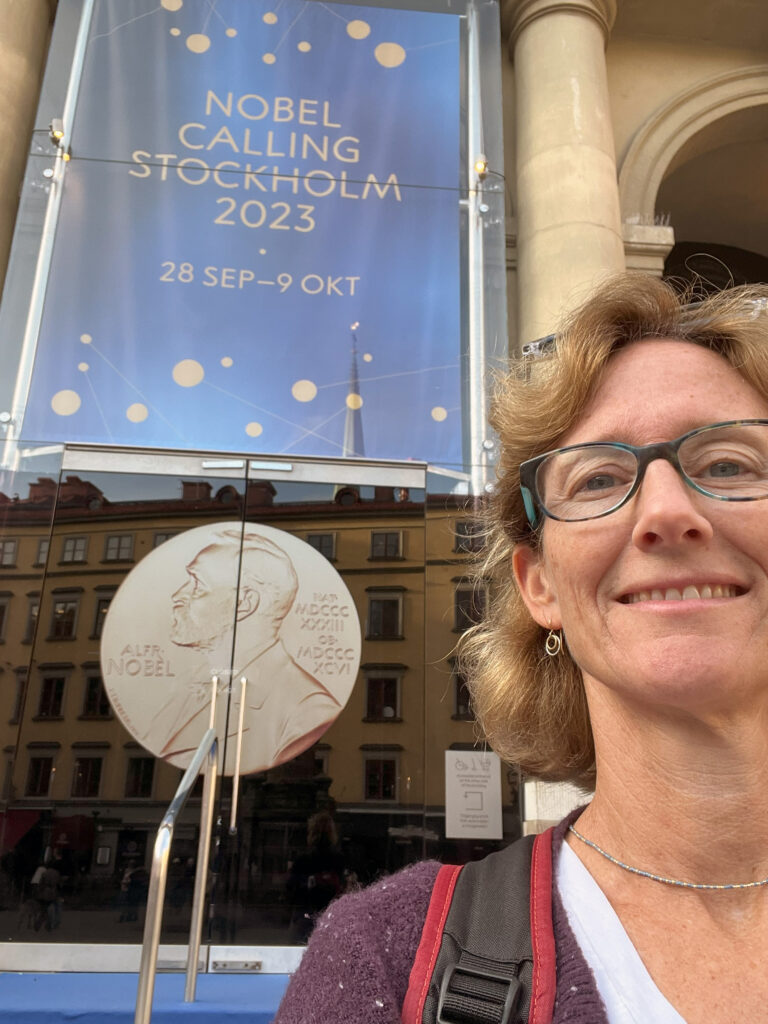
As we finished our conversation looking back at the summit and looking ahead to how she will incorporate what she’s learned into her teaching, Ms. Tatlock wanted to emphasize one last point: “I’m really grateful that Wheeler helps provide for opportunities like the Nobel Prize Teacher Summit. I had written a grant to another organization to actually get there, but Wheeler covered the incidentals, and the importance of professional development support is worth sharing. It’s huge.”
